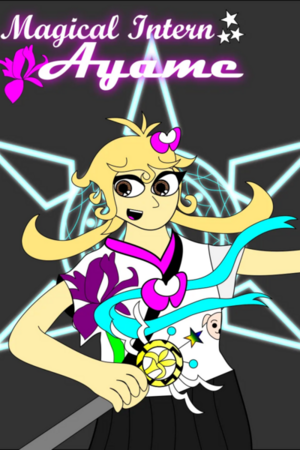Chapter 64:
Dio - Progress (2)
The Dream after Life
With lightness in his step, Dio hurried back to his dwelling. In his thoughts lingered a relief he could not quite name. A small spark had joined the others in his mind; faint, a little eccentric in its glimmer, yet as warm as the rest, which danced like stars around the sun that shone with Ray’s distant presence. The blindness had nearly vanished, and Dio quickly set out to visit Brela, who of late spent more time in her garden than venturing into the woods. He remained there for the rest of the afternoon, helping her among the plants.
It was nice to see Brela, though Dio felt a little unsettled knowing she no longer took her beloved excursions, gathering herbs and berries only close by. Still, she betrayed no sign of worry—neither about Dio and his attempts nor about that other, private burden he was sure gnawed at her. In the end, he was simply glad to spend the evenings with her and Des, sitting on that log that gave them a clear view of the sunset.
And each evening that followed was a wondrous time, which Dio could spend quietly with his friends. They weren’t always alone.
Lot sometimes dropped by, proudly swinging a new axe and challenging anyone to test its edge. Avee often followed, pretending her visit was coincidence, though her hands were quick to spread out a length of cloth stitched with delicate patterns from the loom Lot had built. Yorm would join in with a half-formed scheme to make life easier, his excitement tumbling over his words, while Wes and Reab arrived with some new sweetness still warm from the oven, filling the air with sugar and spice.
Not every evening was spent in their small circle, though. At times, they gathered on the wide village square, where tall fires roared into the coming night, sparks whirling upward like new stars, driving back the gentle chill that drifted in with the dark. The air during these times grew thick with scents that carried far—warm bread, delicate cookies dusted with sugar, and the lemony sharpness of cakes that seemed almost too fine for so humble a place.
Neighbors leaned together on benches, sharing cups of steaming tea or spiced drink, while others stood close to the flames, their faces glowing in the shifting light. Laughter rolled through the crowd in waves, a low music that brightened their thoughts. Often, after all had danced and celebrated, Wes and Reab appeared together, hauling a great iron cauldron, its rim gleaming, heavy with a stew that would last all night.
The villagers would press nearer, bowls and spoons in hand, the aroma of herbs and slow-simmered meat filling every breath. Dio, watching, felt the numbness inside him stir faintly in those moments, then ebb again, pushed away by the simple joy of the gathering.
Still, as the days passed—first a few, then dozens—the blindness in Dio kept returning, sometimes stronger than before. Each time it struck, it came as a small shock, an annoyance; yet now he knew what to do. Whenever that hollow feeling rose within him, he would go to someone, listen to their thoughts, their ambitions, the things that moved them. It helped push the blindness away, and the happiness, new perspectives, and fresh ideas he received filled the emptiness inside. In turn, the others always seemed more cheerful, more eager. Their ideas not only lessened Dio’s unease, they began to reshape the village itself.
The square, which had once been nothing but trampled mud and dirt, was soon paved with countless smooth stones, each one carried from the riverbeds and polished by careful hands until they shone with a natural luster. Together they formed a vast mosaic, glimmering in a thousand colors—reds and ochres, pale blues, specks of silver that caught the Sun. People sometimes bent down to trace the shapes with their fingers, whispering to one another about what patterns they saw hidden in the shifting mosaic. Some claimed to see animals, others the Sun, and still others imagined great wheels or circles etched into the ground beneath their feet.
From this radiant square the stones soon stretched outward as roads, branching like roots into the earth, leading toward the fields, the forests, and the distant hills. Each street bore the marks of those who had built it: careful arrangements of larger stones in front of one home, a line of bright quartz guiding the way to another. It was as if the village itself had begun to live, each house weaving its own memory into the paths.
Ogan’s wagons, now so laden that two muldis were needed to pull them, rolled with ease over these roads. The steady rumble of their wheels, iron rims ringing faintly against the stones, became one of the heartbeats of Daw. Before long, that sound was joined, and then overtaken, by the hammering of mallets and the rasp of saws, the sharp cries of wood splitting under the axe. New heartbeats joined, bringing more life and personality to the settlement as the air itself rang with echoes of creation.
The first makeshift tree tents, once built with branches and vines, were taken down one by one, and in their place rose wooden cottages of freshly hewn logs. The scent of pine and resin hung thick in the air. Others gathered to watch, offering food and drink to those who labored. Some villagers etched symbols or patterns into the beams they liked, always sparing spots on their patches for the flowers Brela had once gifted them.
The houses’ roofs were laid with finely grained planks, their smooth surfaces glistening pale gold where the Sun struck them. Memories of Ray flooded Dio's mind now and then when he looked at the sight, and though she was still far away, it still felt as if part of her was here with him.
By the time the first cottages stood tall, Dio had stopped counting the days since his arrival in Daw, content simply to live the days as they came. He often paused to watch the work unfold and sometimes even helped, the air filled with the rasp of tools and the murmur of voices.
At the heart of it all was Lot, working tirelessly, his arms and voice steady as he guided those who had never shaped wood before. Around him, villagers sanded doorframes until they gleamed and carved delicate notches where hinges would rest. Each door was different: some plain, others decorated with small flourishes, curves, and spirals that spoke of their makers’ personality. As the cottages rose, so too did a sense of progress. Daw was no longer a place of tree tents and meek shelters. It was becoming a village, with foundations rooted in both stone and its people.
A village… Yes, it is a village now. Daw has become a true village… Dio thought one evening, as he gazed at the new house rising where once his little tree tent had stood.
Yet time did more than let Daw grow. Within Dio too, more and more of its people began to shine. Their presence strengthened him, until the unpleasant void—the thing that had once given him calm in his meditations—was gone. In its place radiated stars and constellations: his connections to the others, giving him grounding and a sense of belonging.
Still, the distant Sun, the bond with Ray, pulled at his heart. Yet by now, the web of ties holding him to Daw bound him more and more firmly, and he was grateful for it. He did not want to break the promise he had made to Ray. He wanted to give her the chance to first find herself, and he wanted to remain here, with his friends.
One day, after his gray linen had grown so worn that someone stole them from the washing line during his meditation, Dio was sad only until he discovered a beautiful replacement hanging there in their place. The new clothing was as gray as the ones he had “lost,” yet supple, almost like water, and as light as a bundle of feathers. The shoes set nearby were made of brown muldi leather and fit his feet perfectly. His breath caught when he saw the intricate embroidery stitched along the inside of the gray coat, golden threads shimmering in graceful patterns.
As he ran his hand across it, he felt Avee’s sparkling warmth flare inside him, and he could not help but smile.
I truly am at home…
When he saw the seamstress the next day, she only gave him a small nod, but for a brief moment allowed her usually hidden warmth to shine across her face as her hair stirred gently in the wind. Dio noticed she now looked younger, and her hair seemed smoother than he remembered. Lot, too, had become almost entirely blond and had gained a bit of muscle, while losing some of his wrinkles. It was as though their joy in the Dream had refreshed their bodies.
Even those who remained skeptical of the new ways of work still rejoiced in the cottages, and in the wonderful food that Wes and Reab now shared every day in the village square, morning, noon, and evening. Yet Dio always found Des out in the fields, faithfully working with his hoe.
“Why don’t you use the plow?” Dio had asked him once.
“That would take away the joy. I like this work just as it is,” Des had answered, and kept on digging his furrow.
No one minded, and everyone supported those who wished to continue working in the old ways as best they could. Some even kept living in the small tree tents, and part of the fields were set aside for those who wanted to farm by older methods.




Please sign in to leave a comment.